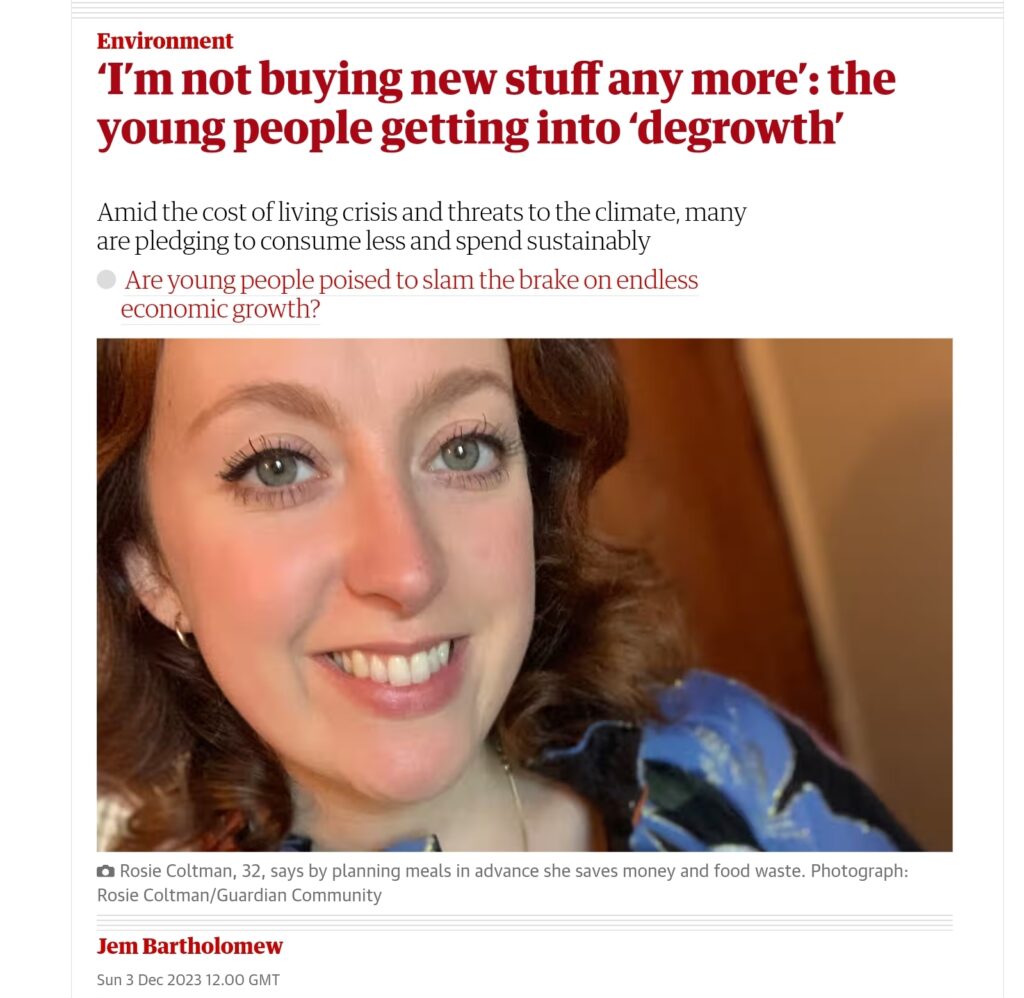“I’ve always been a charity shop girl,” says Rosie Coltman, a 32-year-old teacher from Leicestershire.
In recent years, she has shifted from fast fashion towards renting and repairing clothes, or buying secondhand or higher-quality items. She has bought a waxed Barbour jacket that, while more expensive in the short term, she hopes will be cheaper overall due to its durability. For a friend’s wedding, she hired a black Ganni dress for £50 from the app By Rotation. She also batch-cooks food to avoid waste, and prioritises buying from ethical and sustainable companies.
Coltman’s new habits echo a wider social shift. Faced with a cost of living crisis, the looming threat of climate disaster, and the pandemic’s upending of daily life, which has led many to rethink their habits, more people are pledging to consume less and spend more sustainably – reducing the strain on planet and pocket.
…
Herniman said that apart from one summer trip away, holidays and weekends away were unnecessary luxuries. He has cancelled some TV subscriptions and keeps clothing such as coats and socks much longer, darning holes instead of replacing them.




